At first glance, Lisa Margan lives in a viticultural heaven on earth.
The acclaimed winery and restaurant she and her husband, Andrew Margan, operate just beyond the village of Broke in the Upper Hunter are cocooned by vineyards and cradled at the feet of the Broken Back Range, with Wollombi Brook babbling by.
But this is a valley filled with riches, and some of them are buried out of sight, deep in the earth.
So the Margans have to share their slice of heaven with coal mines.
"We're kind of the last of the green grass, and then, seriously, 10 minutes that way, is mining all the way to Muswellbrook and beyond," explains Lisa Margan, as she points to the north. "So we feel the impact. We don't just feel it, we see it; the impacts of mining."
Asked about the impact of having mines as neighbours, the businesswoman and self-described "farmer" replies, "Look, no one could say that you could gaze longingly at an open cut mine. You can see the importance of it. You can see the value to the economy and the local economy, creation of jobs. That's column A.
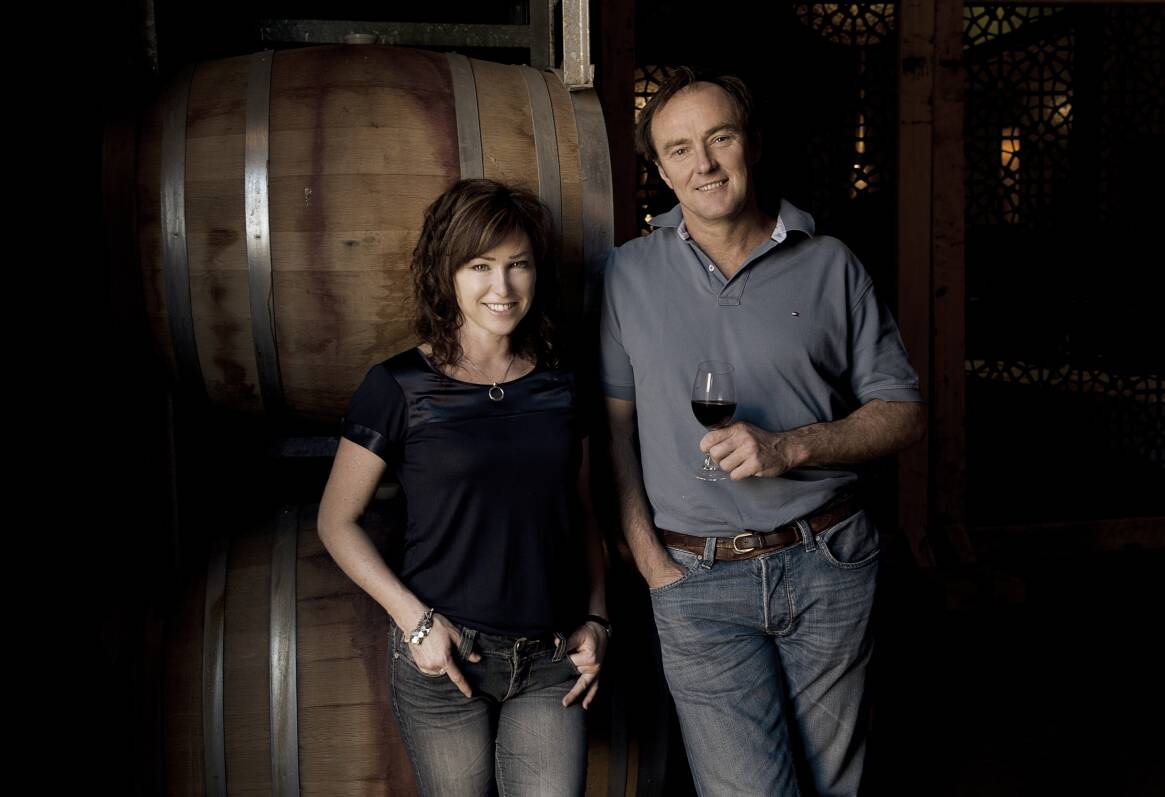
"Column B, the visual amenity around that, is breathtaking. It's not pretty to look at."
Mines and wines. That is how most people outside the region perceive the Hunter Valley.
Lisa Margan points out both can co-exist, and they have done so in the valley for a long time, "as long as everyone stays on their side of the fence".
Even so, Lisa Margan lives on the edge of a faultline in public opinion over mining. On one side, there are jobs, thousands of them, powered by coal in this electorate. On the other side of the faultline are the concerns revolving around the cost of coal mining to public health and the environment.
That faultline courses its way out of the valley and all over the globe, as people debate issues surrounding climate change and economic security.
But nowhere in Australia does that faultline run deeper than in the Hunter. It is far deeper than any mining pit. And, with a Federal election looming, it is a faultline into which political hopes and ambitions can tumble.
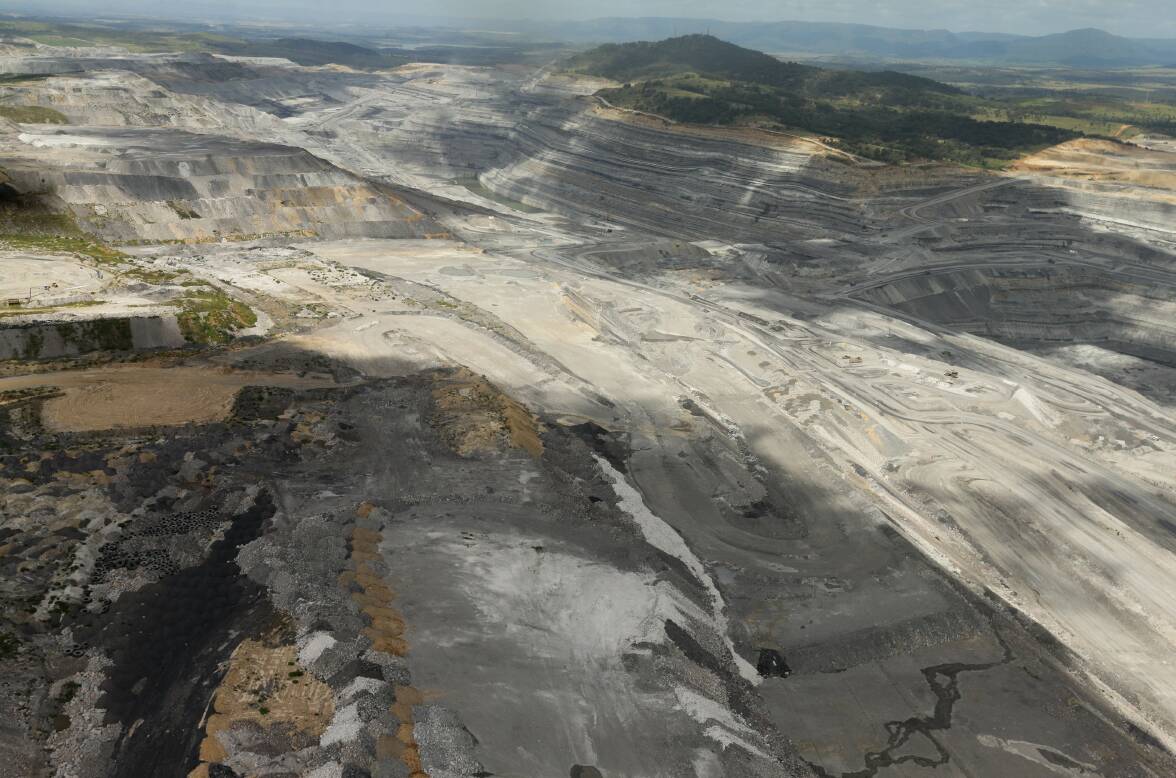
THE Margans are in the electorate of Hunter.
The dramatic change in landscape and workplace cultures around them, from vines to mines, is but a speck of the mind-boggling diversity in industries, environments, and ways of life spread across the 10,640 square kilometres of this seat.
From the villages and towns sprinkled along the western shores of Lake Macquarie, Hunter makes its way up the valley, through Cessnock and Singleton to Denman and Muswellbrook.
The seat is home to horse studs and grazing properties, tree-change and lake-change communities, vineyards and tourist resorts, power stations and mines.
The electorate covers much of the area that wore its reason for being in its name, the Coalfields, which powered so much of a young and growing nation in the first half of the twentieth century. And further up the valley, in the northern part of the seat, is the next generation of mines, with the massive open-cut operations that create employment, wealth and debate in the Hunter electorate and beyond.
As Lisa Margan describes Hunter, "It's a mixed bag of successful industries, and I think everyone should have a voice in that."
But as far as her husband is concerned, one voice is louder than others. This is the kingdom of coal, Andrew Margan reckons, but it doesn't have to be, if politicians took a different perspective.
"We lack people with vision," the winemaker argues. "We could be one of the greatest agricultural manufacturing countries in the world. Turning raw produce we grow or dig out of the ground and turning it into things and sending that overseas."
Asked why he doesn't think that is more of a talking point in the electorate, he replies, "because ... coal is king".
In the seat of Hunter, coal can be not only a political kingmaker, but a potential dethroner.
That was made evident at the 2019 election.
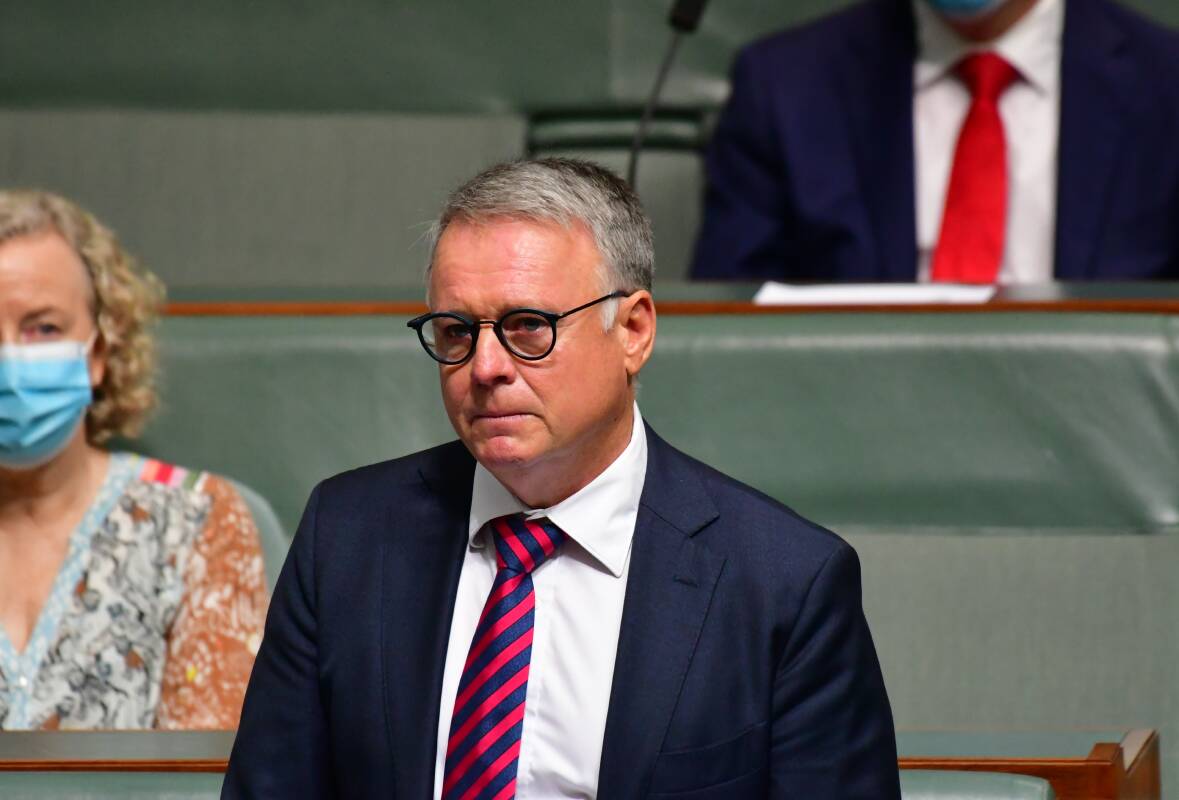
The name Fitzgibbon has been associated with the seat for decades. The Australian Labor Party's Eric Fitzgibbon was the local member from 1984 for 12 years, before his son, Joel, became the MP.
But in 2019, Joel Fitzgibbon's long run as the Member for Hunter was threatened as he tried to sell Labor's climate policies to his constituents. Many in the electorate weren't buying, because they saw the packages as a threat to not just mining jobs but the economic welfare of their communities.
Many of those voters cast their lot with One Nation candidate and coal miner, Stuart Bonds. He gained more than 21 per cent of the primary vote. By the time the votes were all counted and preferences were distributed, Joel Fitzgibbon had sustained a swing of almost ten per cent against him. The safe Labor seat had shifted into marginal territory.
Retired coal miner and former Cessnock councillor Allan Stapleford observed Joel Fitzgibbon and the ALP teetering close to that mining issue faultline in Hunter.
"Joel was trying to sell their [Labor's] line," Mr Stapleford says. "I know he was speaking out against it, but he still officially had to try and sell their line for the election. It did him no good."
Allan Stapleford is a Coalfields man. He lives on a farm near the historic village of Millfield, with a view of craggy sandstone hills from his veranda.
"It's one of the prettiest places in Australia," he says, as he gazes at a sun-lit escarpment.

When it comes to his view on coal, Mr Stapleford has a perspective shaped by spending decades working underground around the area.
He says mining offers "good employment, good work", and even though the last mine in the Cessnock area - Austar, near Paxton - is closing, he believes the industry still has a future in the Hunter.
And he reckons the future of mining will be on many local voters' minds again as they head to the polling booth.
"People in the mining industry are worried about their jobs, so you can understand why. You've got thousands of people who are worried about their positions, and if everybody's pushing to swap to green energy, which will happen - it will happen - but when's it going to happen?"
Lisa Margan says in the Hunter electorate, the equation is not as simple as jobs versus the environment.
"They're not mutually exclusive things," she says. "You cannot presume someone who works in the mining industry does not care about the environmental landscape they're going to hand over to their children. They do care.
"What they care about is that there is employment and vibrancy in rural towns. What they care about is that someone is thinking ahead and planning for what they're going to do - and it's not if coal is phased out, everyone's pretty clear on that's happening, but it's a when - and how does it happen without too much disruption."
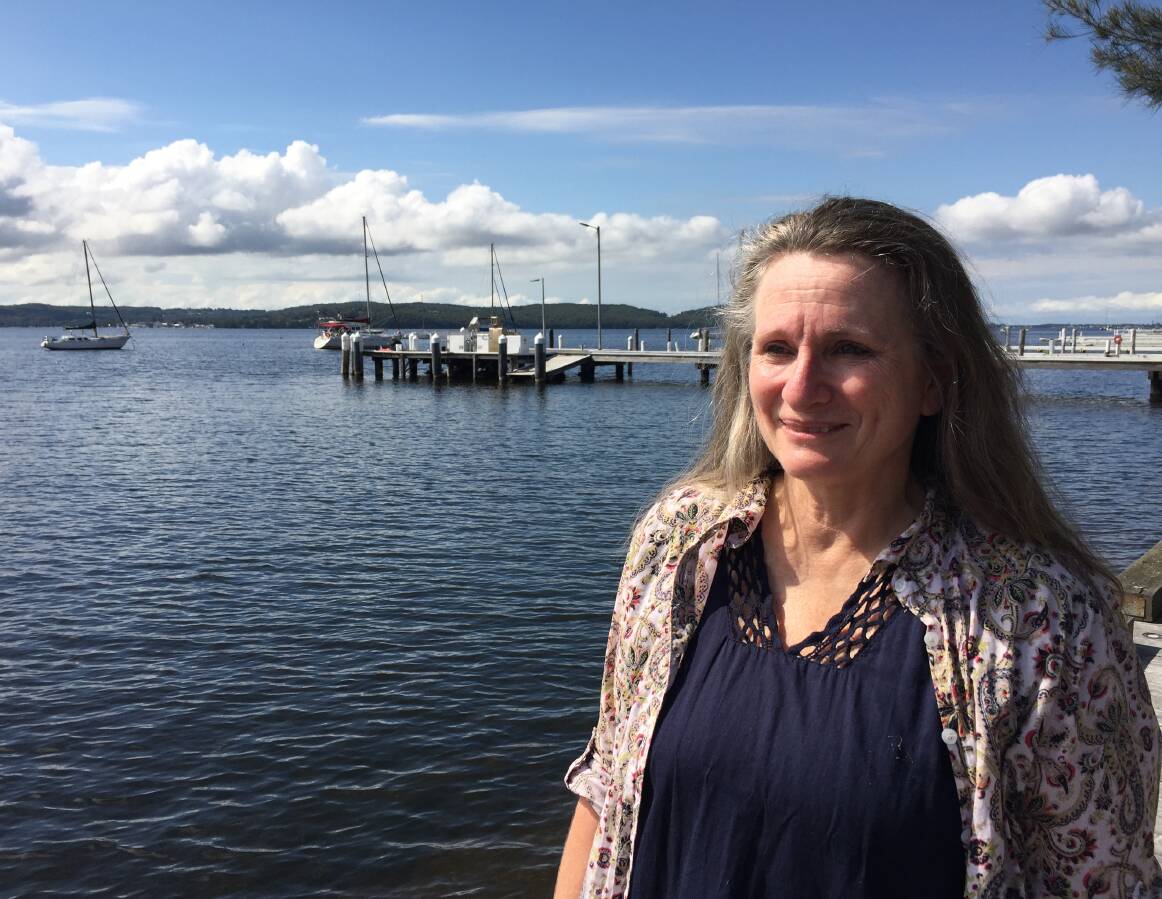
An hour's drive away from the Margans' winery, Suzanne Pritchard sips a coffee on the shore of Lake Macquarie at Toronto. It can feel a world away from the issues of the Upper Hunter.
Which is why Ms Pritchard, a long-time western lake resident and President of the Coal Point Progress Association, wonders why this area was rolled into Hunter in a redistribution in 2016.
"I think there is a very big disconnect," Ms Pritchard says. "I don't recall seeing the member down here, his office isn't here. I don't feel connected to the electorate of Hunter. It doesn't resonate. Some of the issues around jobs and coal and power are the same. But we have so many other issues.
Asked about those issues, she replies, "I think being on the lake and a peninsula, and the impacts of climate change and sea level rise, and habitat destruction and overdevelopment, these are things that are on everybody's lips now."
The western and southern sides of the lake host mines and power stations, including the Eraring facility, which has had its closure brought forward to 2025. So those words that pop up in the Upper Hunter - jobs and climate change - also resonate in this part of the electorate.
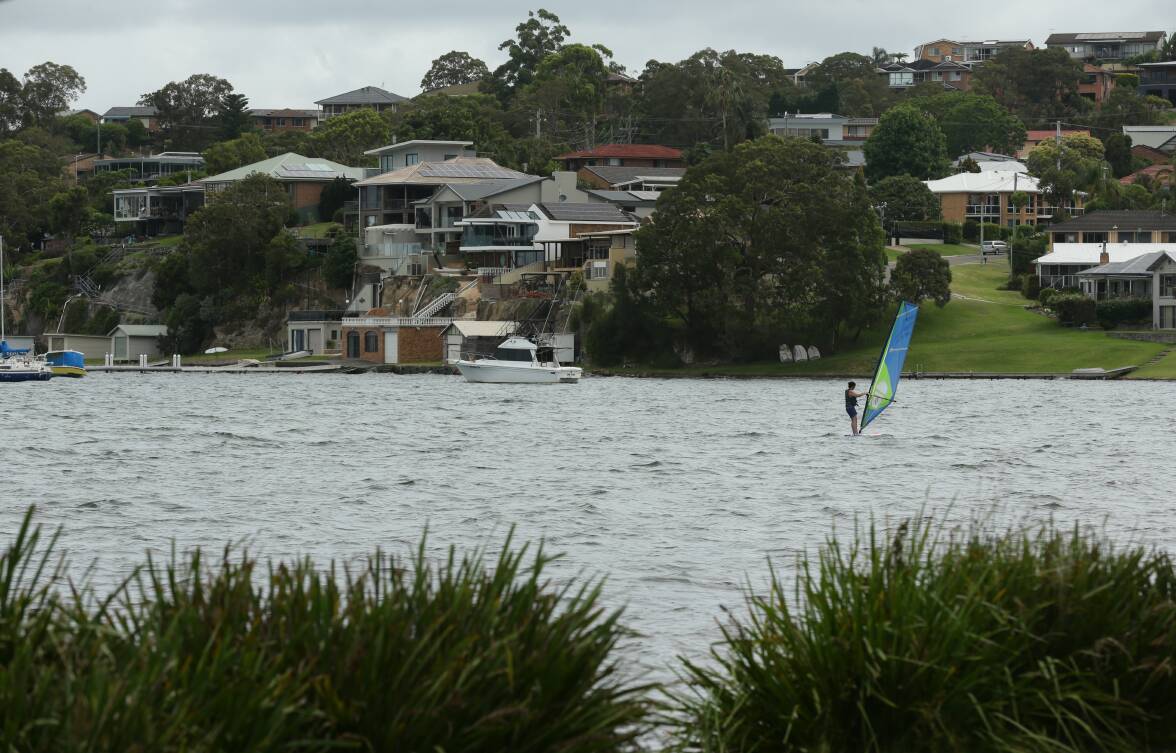
And there's a couple of other terms that are popping up in conversations in the lead-up to this election: cost of living and housing affordability.
Since the COVID lockdowns have prompted many people to rethink how, and where, they live, there has been a flow of big-city dwellers to regional areas, such as Lake Macquarie and the Coalfields. That's added to pressure on property prices, which have soared.
Allan Stapleford reckons housing affordability will be a major issue in the electorate on May 21.
"I think it will have a lot to do with it, because there's already talk of interest rate rises," Mr Stapleford says. "And once that happens, people are going to fall under a lot more stress.
"They've bought to the maximum. You've only got to look at the price of houses, even out here. So it's going to have a big impact on the election."
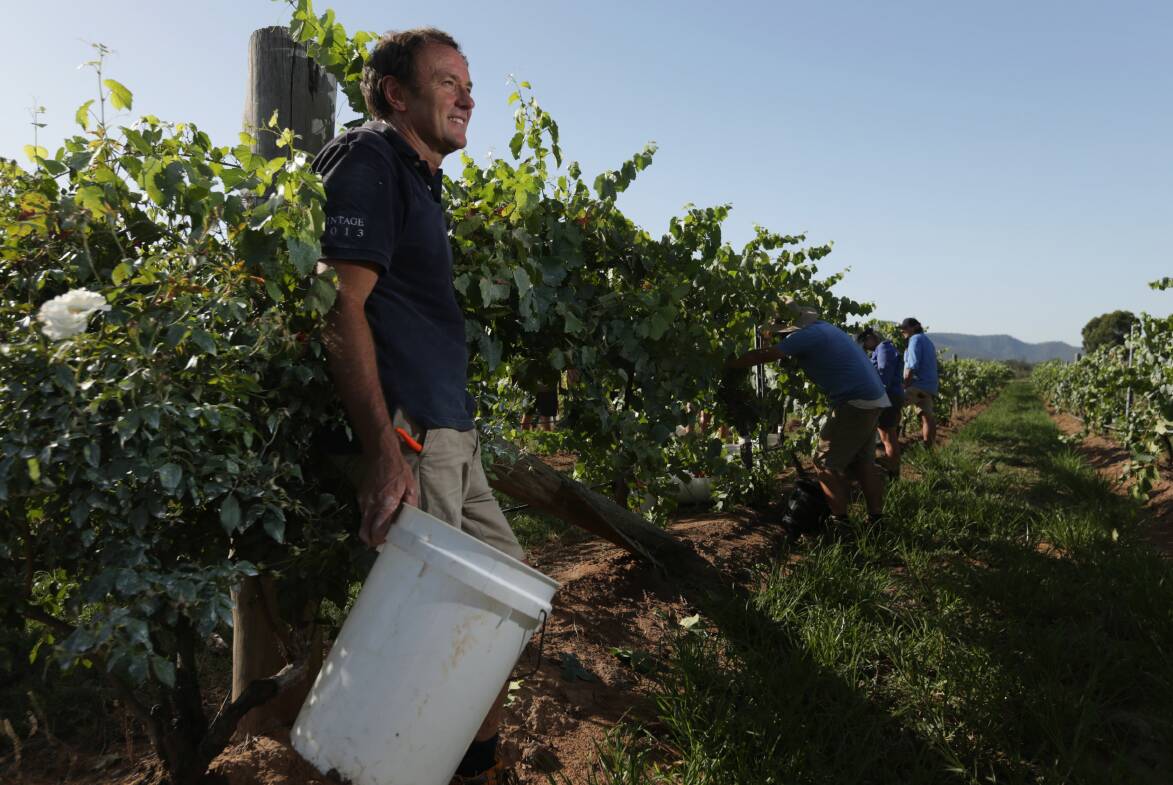
In terms of their representative in Canberra, the Hunter constituents are in for a change of face. Joel Fitzgibbon is retiring.
But all four voters the Herald has spoken with believes there will be no change in who holds the seat. The Labor candidate, Dan Repacholi, will win, they predict.
"Whether he should win it or not, whether I think he should win it or not, and Dan's a good bloke, is not the point," winemaker Andrew Margan says. "The point is I can see another Labor victory in this area."
He believes Hunter will stay a Labor seat "until coal goes".
But, Andrew Margan says, coal will go eventually, and that's what all political candidates should be looking towards and acting upon.
"I understand coal is still incredibly important," he says. "But the future has got to be around tourism, and the redevelopment of those coal mine sites into something that's going to be worth doing. Like the lakes systems in Germany and stuff that they've done with the open cuts, things like that.
"Ideally, that's where we have someone with some vision, turning something that's pretty ordinary into something that's fantastic would be a great idea."
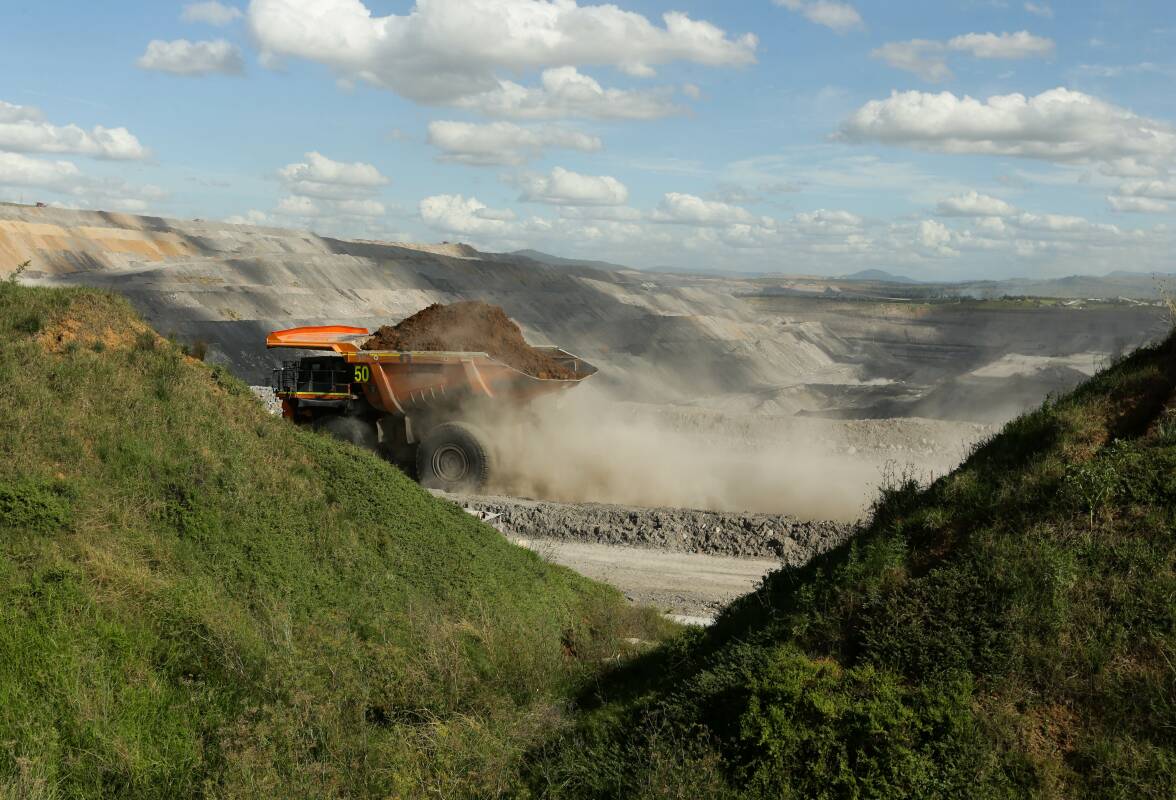
Lisa Margan is concerned that because Hunter is perceived as being a safe Labor seat, it is overlooked by the parties: "You feel that your vote is really not going to make a difference".
What's more, she argues, regional areas are treated as the poor cousins compared with cities, when it comes to the funding of facilities such as hospitals and major roads.
"We're only two hours out of Sydney, but rural regions are under-resourced in terms of infrastructure," Lisa Margan says.
As she gazes at the lake lapping at Toronto's shoreline, Suzanne Pritchard says whoever is voted into power has to confront climate change.
Political leaders have to come up with a solid plan to help bring about change without leaving communities, such as those in the Hunter electorate, behind.
Change, she argues, begins with the power of a single ballot.
"I guess one thing [is] we can try and vote for somebody who is going to provide real leadership, real direction, have a bit of guts about it," Ms Pritchard says. "Be a bit fearless."
Listen to the audio tour through the electorate of Hunter, featured on "Voices of the Hunter with Scott Bevan - Federal Election Special", on the Apple, Spotify and Google podcasts, and through newcastleherald.com.au
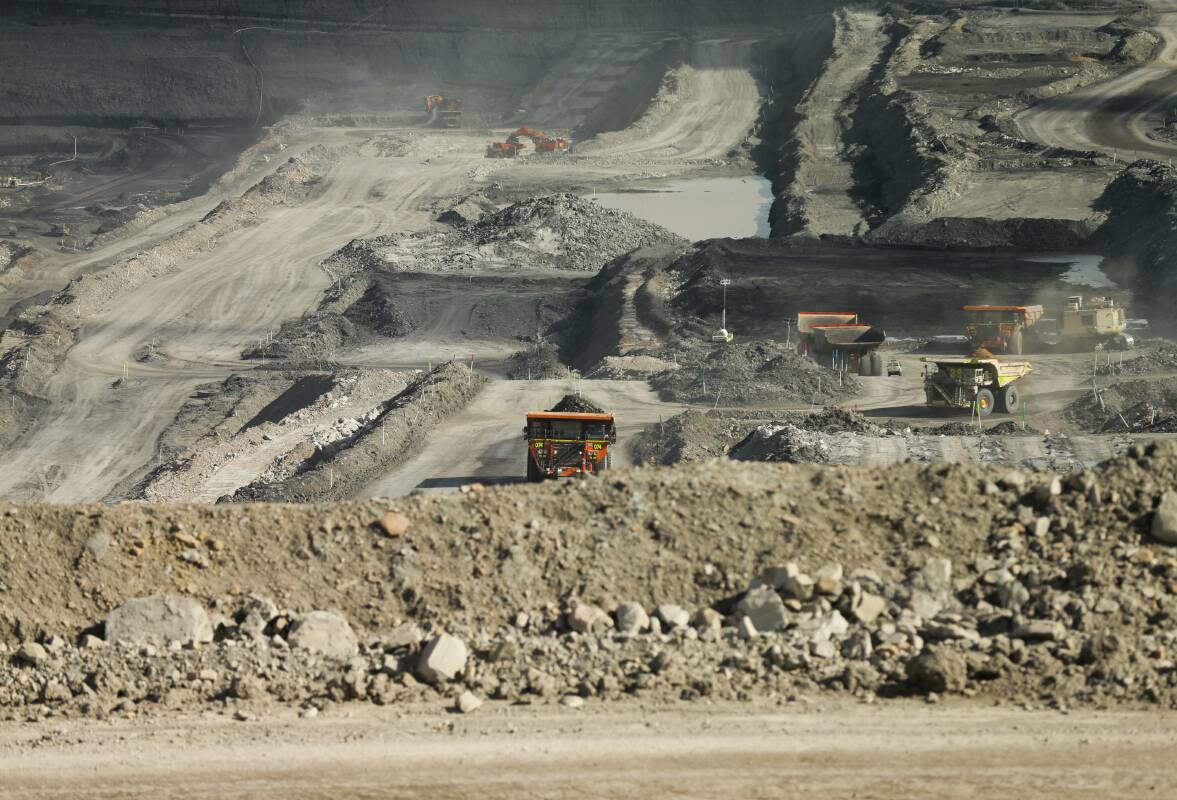
. .
,







